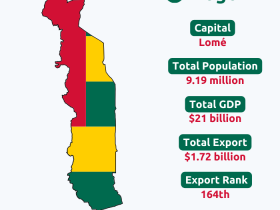
Career opportunities in Eswatini
Eswatini, a small landlocked nation in Southern Africa, offers unique career opportunities shaped by its economy, cultural heritage, and strategic position. The country is rich in natural beauty and has a traditional economy that combines subsistence farming with modern sectors like banking, tourism, and manufacturing. Below is an overview of some key career opportunities in Eswatini.
1. Agriculture and Agribusiness
Agriculture remains the backbone of Eswatini’s economy, with most of the rural population engaged in farming. The country’s main crops include sugarcane, maize, and cotton. Sugar production, in particular, is a major export and provides significant employment opportunities in farming, processing, and agricultural management. The government and private sector promote initiatives to modernize farming methods and support agribusiness, which opens career paths in agronomy, irrigation technology, and sustainable farming practices. Additionally, the agro-processing sector, which transforms raw agricultural products into consumable goods, creates jobs in food science, packaging, and logistics.
2. Tourism and Hospitality
Eswatini’s scenic landscapes, national parks, and cultural heritage sites make it a promising destination for tourists. The government has been actively promoting tourism as a means of economic diversification, opening up job opportunities in hospitality, travel services, tour guiding, and conservation. Careers in eco-tourism are especially growing, as more visitors are drawn to activities like wildlife viewing and cultural experiences. Hotels, lodges, and restaurants require a wide range of employees, from entry-level positions to specialized roles in management, marketing, and customer service. Furthermore, community-based tourism initiatives also allow for entrepreneurial opportunities for locals.
3. Finance and Banking
The financial sector in Eswatini is relatively developed, particularly in banking and insurance. The Central Bank of Eswatini regulates the sector, which includes commercial banks, microfinance institutions, and insurance companies. Careers in finance range from banking operations and loan processing to risk management, investment advising, and accounting. There is also a growing demand for financial technology (fintech) professionals, as digital and mobile banking platforms gain popularity. Eswatini’s focus on expanding financial inclusion and literacy means opportunities in finance are expected to continue growing.
4. Manufacturing and Industry
Eswatini’s manufacturing sector is centered around the processing of sugar, textiles, and wood products. Factories producing garments for export, especially to the U.S. under the African Growth and Opportunity Act (AGOA), provide numerous jobs. The textile industry, in particular, offers roles in production, quality control, and supply chain management. Additionally, there are opportunities in manufacturing plants focused on beverage production, furniture, and packaging. With government incentives to attract more industrial investments, careers in engineering, operations management, and industrial maintenance are also available.
5. Information and Communication Technology (ICT)
Eswatini’s ICT sector is emerging as a crucial area for future job growth. The government’s “Smart Eswatini” initiative aims to enhance digital skills, infrastructure, and technology in the country, which could lead to jobs in software development, IT support, cybersecurity, and data analysis. As more organizations digitize their operations, the demand for ICT professionals who can develop e-government solutions, support digital banking, and improve healthcare and education technology is expected to increase. Entrepreneurship in ICT is also encouraged, creating opportunities for tech startups and freelance work.
6. Education and Healthcare
Eswatini faces a pressing need for skilled professionals in education and healthcare. Careers in teaching, school administration, and curriculum development are available, especially as the country works to improve literacy rates and educational standards. In healthcare, there is demand for doctors, nurses, public health workers, and medical researchers, particularly due to the country’s efforts to combat HIV/AIDS and improve general healthcare access. Careers in community health and mental health support are also growing, with opportunities for professionals trained in social work and counseling.
7. Public Sector and Development Work
The government and various international organizations offer career opportunities in public administration, policy planning, and development programs. Eswatini partners with agencies like the United Nations, World Bank, and NGOs to implement social, economic, and environmental programs. These organizations often hire experts in fields such as public policy, environmental management, social development, and project management. Additionally, careers in foreign relations, diplomacy, and community outreach offer paths for individuals interested in public service.
Conclusion
Career opportunities in Eswatini span a variety of sectors, reflecting both traditional and modern economic activities. While agriculture and tourism remain foundational, growth in finance, ICT, and education signals a more diversified job market. With a proactive approach to development and economic diversification, Eswatini offers a range of careers for individuals interested in contributing to the country’s growth and progress.



Leave a Reply